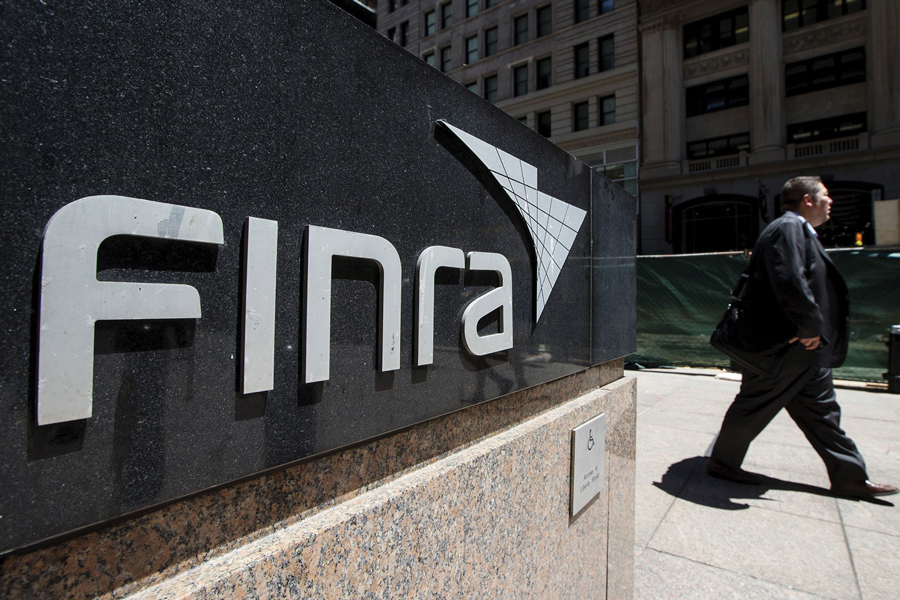

Finra is launching a set of regulatory initiatives aimed at modernizing its rulebook, easing compliance pressure on smaller firms, and strengthening the financial industry's defenses against cyber threats and fraud.
Announced by Finra president and chief executive Robert Cook on Wednesday, the multi-pronged “Finra Forward” initiative comes amid ongoing changes in market structure, technology, and how firms deliver financial services.
The effort centers on three main areas: rule modernization, member firm compliance, and cybersecurity risk management.
“Continuous improvement means our work is never done, especially since capital markets are constantly evolving,” Cook wrote in a blog post announcing the initiative.
As part of its rule modernization effort, Finra is soliciting industry input through a series of regulatory notices. The review focuses on whether some regulations have become obsolete or unnecessarily burdensome in light of how firms operate today.
Initial areas flagged for review include rules that may affect a firm’s ability to support capital formation and those that may limit the flexibility of new-generation workplace arrangements, such as remote operations or hybrid staffing.
"This rule modernization initiative will support our mission by establishing more efficient and effective standards that reflect the contemporary market, business, and technology environment," the blog post read in part.
Finra has had an eye on updating its regulatory approach through remote work for years. In 2024, it announced a three-year pilot to assess the effectiveness of remote inspections, with 741 of its member firms signing up to participate in the first phase.
While Finra maintains an ongoing retrospective review program, the new effort reflects a broader, more systematic attempt to identify regulatory friction points that might hinder innovation or operational efficiency.
Many small and mid-sized wealth firms may also benefit from expanded tools and resources under the compliance support pillar of the initiative.
According to Finra, its median member firm has just 12 registered representatives, while the average firm has closer to 200. The implied skew in the numbers underscores the challenge of keeping pace with compliance requirements faced by firms operating on leaner budgets.
“It is much better for us to support effective compliance up front, rather than address problems after the fact,” Cook wrote.
Finra plans to offer more topic-specific compliance resources, including tailored events, checklists, and tools aimed at firms with fewer internal compliance resources.
The Wednesday announcement also laid out plans to improve how lessons from exams and investigations are shared with firms, with the goal of helping members benchmark their practices and avoid preventable issues.
Finra is also pledging to refine how it conducts oversight in order to minimize redundancies or unnecessary demands on firm resources. This includes reassessing the scope and frequency of data requests, improving communications between regulatory staff and firm contacts, and potentially tailoring reviews to better match a firm’s risk profile or business model.
“We recognize that Finra’s regulatory work requires member firms to expend compliance resources, in addition to business, technology, and operations resources,” Cook wrote. “It is our obligation to conduct robust oversight … but it is also our responsibility to do so in a way that avoids imposing unnecessary burdens.”
This part of the initiative is especially relevant to advisory firms concerned about the time and staffing required to manage examinations or respond to information requests that may not reflect the nature of their businesses.
In response to escalating cyber threats across the financial industry, Finra said it is creating a Financial Intelligence Fusion Center. The unit will collect, analyze, and distribute cyber and fraud threat intelligence through a secure portal to help firms respond to real-time risks.
The center is expected to serve as a key resource for small and mid-sized firms that may lack the internal resources to track and respond to cybersecurity developments independently.
In addition to real-time alerts, Finra plans to increase the availability of scenario-based training, such as tabletop exercises, to help firms stress-test their fraud and cybersecurity response plans.
Finra said it will continue seeking feedback from member firms, trade associations, and investor advocates as the initiative progresses. The watchdog is currently accepting feedback on Regulatory Notice 25-04, which seeks input on areas of its rulebook that may require modernization or streamlining.

Most firms place a limit on advisors’ sales of alternative investments to clients in the neighborhood of 10% a customer’s net worth.

Those jumping ship include women advisors and breakaways.

Firms in New York and Arizona are the latest additions to the mega-RIA.

The agent, Todd Bernstein, 67, has been charged with four counts of insurance fraud linked to allegedly switching clients from one set of annuities to another.

“While harm certainly occurred, it was not the cataclysmic harm that can justify a nearly half billion-dollar award to the State,” Justice Peter Moulton wrote, while Trump will face limits in his ability to do business in New York.
Orion's Tom Wilson on delivering coordinated, high-touch service in a world where returns alone no longer set you apart.
Barely a decade old, registered index-linked annuities have quickly surged in popularity, thanks to their unique blend of protection and growth potential—an appealing option for investors looking to chart a steadier course through today's choppy market waters, says Myles Lambert, Brighthouse Financial.
